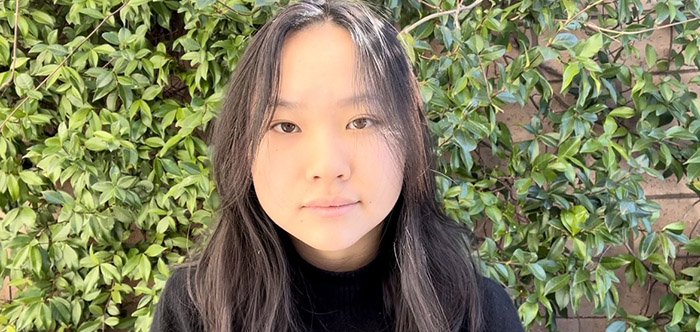
In a prestigious acknowledgment of scientific excellence, Katherine Hua, a 17-year-old student from Woodbridge High School, has been named among the top 300 scholars in the 2024 Regeneron Science Talent Search. The annual competition, founded in 1942, stands as the nation’s oldest and most esteemed science and math competition for high school seniors.
The Regeneron Science Talent Search provides a platform for young minds to showcase their original research to professional scientists, with past participants achieving global recognition. From a pool of 1,964 entrants, Katherine Hua’s project, titled “An AI-Powered Assistive Device for the Visually Impaired,” secured her place among the top 300 scholars. Each selected student, including Katherine, receives a $2,000 award, with an additional $2,000 allocated to their respective schools.
To qualify for this prestigious recognition, participants had to submit a written report on their research, teacher recommendations, and transcripts. The competition demanded a comprehensive presentation of results resembling graduate school theses, reflecting the high academic standards and rigor involved in the selection process.
The Regeneron Science Talent Search attracted applications from 712 high schools across 46 states, and also Guam, Puerto Rico, and ten other countries. Scholars were chosen based on their exceptional research skills, academic commitment, innovative thinking, and potential as future scientists. The top 40 finalists will be announced on January 24, adding another layer of anticipation to this already momentous occasion.
Katherine Hua’s journey to this achievement extends beyond the current recognition. In 2022, she participated in the Orange County Science and Engineering Fair (OCSEF) with the same project, earning a remarkable 2nd place award in the category of Electricity & Electronics (category 300). This earlier accolade showcased the project’s significance and impact, setting the stage for its subsequent recognition on a national level.
Katherine’s project addresses a critical global issue affecting 253 million visually impaired individuals worldwide, a number projected to triple by 2050. Traditional aids, such as Braille, guide dogs, and white canes, while once indispensable, lack versatility and adaptability. In response to this challenge, Katherine developed a groundbreaking prototype utilizing A.I. object detection, text recognition algorithms, and ultrasonic technology to create an effective vision aid.
The core functionality of Katherine’s vision aid prototype revolves around a Raspberry Pi 4 computer board equipped with a camera, ultrasonic sensor, headphones, and other peripherals. Modified open-source Python scripts implement object detection and text recognition models, enabling the prototype to recognize real objects and printed text captured by the camera’s live video feed.
Katherine Hua’s innovative approach to addressing a pressing global issue not only earned her local acclaim but has now garnered national recognition through the Regeneron Science Talent Search. As the top 40 finalists are eagerly awaited, Katherine’s achievements serve as a beacon of inspiration for aspiring young scientists in Orange County and across the nation.
